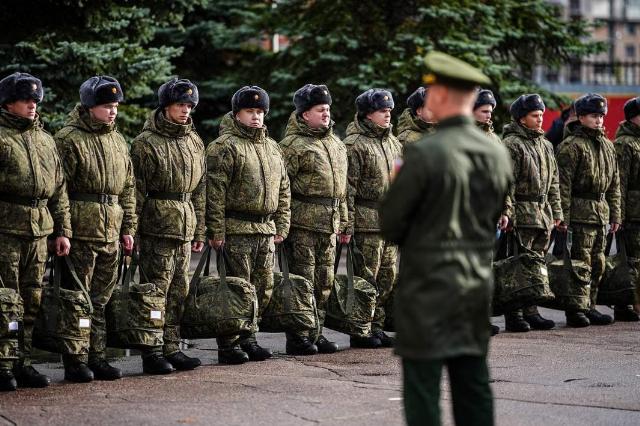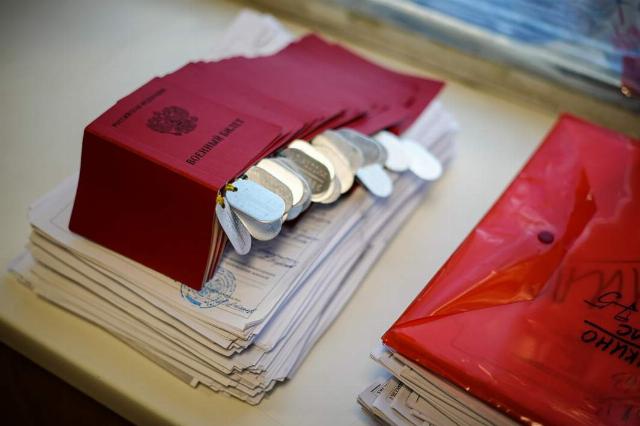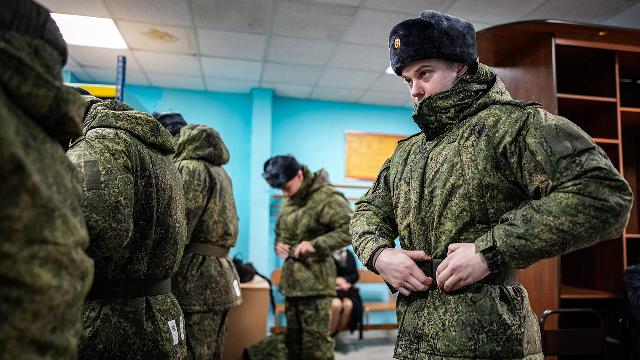The State Duma approved the transition to a new year-round conscription system
In the third reading, the State Duma unanimously adopted a law on the transition to year-round conscription. Now it takes place only twice a year: from April 1 to July 15 and from October 1 to December 31. This is one of the most noticeable changes in the system of military service in recent decades. For more information about what the new order means for conscripts, how the service procedure will change, and what innovations citizens will expect in the coming years, see the Izvestia article.
Year-round conscription: a new army recruitment system
On Tuesday, October 28, at the plenary session of the State Duma, deputies approved in the third reading amendments clarifying the procedure and timing of the draft campaign in Russia. The main change will be the transition to year-round conscription, which will now be conducted from January 1 to December 31.
Until now, conscription has been carried out twice a year: in spring (from April 1 to July 15) and in autumn (from October 1 to December 31). After the changes come into force, citizens will be able to receive summonses and undergo the necessary military accounting procedures throughout the calendar year.

Photo: IZVESTIA/Sergey Lantyukhov
Image source: iz.ru
At the same time, the dispatch of conscripted citizens to their duty stations will remain the same, that is, twice a year, during the same periods: from April 1 to July 15 and from October 1 to December 31. For certain categories of citizens, such as residents of the Far North, workers engaged in agricultural sowing and harvesting, as well as teachers, special terms of conscription will remain, taking into account the specifics of their activities.
According to the developers of the law, the transition to year-round conscription will evenly distribute the burden on military commissariats, improve the organization of the selection and training of recruits and improve the quality of recruitment of the armed forces. Traditionally, the beginning of the draft campaign will be determined by a decree of the President of the Russian Federation, and citizens who are not in the reserve will be sent to the service.
New rules for alternative civilian service
The adopted law amends the procedure for submitting applications for alternative civil service (AHS). Now the terms of applying to the military commissariats will be strictly determined depending on the period of conscription. If a citizen is scheduled to be sent for military service from October 1 to December 31 of the current year, an application for the AHS must be submitted before April 1.

Photo: IZVESTIA/Sergey Lantyukhov
Image source: iz.ru
If the decision of the draft board provides for sending troops from April 1 to July 15 next year, the application should be submitted before October 1. Thus, conscripts are given the opportunity to declare in advance their desire to undergo alternative service.
Electronic summonses and new rules of attendance at the military enlistment office
According to the adopted law, the deadline for a conscript to appear at the military enlistment office after posting a summons in the unified electronic register is no more than 30 days.
Previously, the dates may have varied. So, the agenda could indicate the need to arrive the very next day or within a few days. Now the legislators have clearly defined a single deadline to avoid ambiguity.
From the moment the summons is placed in the electronic register, a citizen subject to conscription is prohibited from leaving Russia. This measure is aimed at ensuring the timely performance of military duty and preventing draft evasion.

Photo: IZVESTIA/Dmitry Korotaev
Image source: iz.ru
The law also establishes the right of military commissariats to issue extracts from the military registration register to citizens, including in electronic form. It will be possible to obtain such an extract through the Gosuslugi portal, the official website of the register of summonses, or by contacting the multifunctional center in person. The innovation simplifies access to information and makes interaction with military enlistment offices more convenient.
In addition, draft commissions will now be able to make individual decisions without the personal presence of a citizen. We are talking about cases of granting a deferral or exemption from conscription. Such a rule should reduce bureaucratic procedures and speed up the process of reviewing applications.
After approval by the Federation Council and signing by the President of the Russian Federation, the law will enter into force on the day of its official publication. However, certain provisions, including the year-round conscription rule, will take effect on January 1, 2026.
Categories of conscripts and grounds for postponement
In accordance with the federal law on Military Duty and Military Service, men between the ages of 18 and 30 who have no grounds for release or postponement and are registered for military service are subject to conscription. The category of conscripts includes both citizens who have already been registered and those who are required to undergo this procedure.
The current rule came into force on January 1, 2024, when amendments were made to the legislation that raised the upper age limit for conscripts from 27 to 30 years. The decision became part of a set of measures aimed at strengthening the country's defense capability and expanding the personnel reserve of the Armed Forces of the Russian Federation.
At the same time, citizens who are in reserve, who have a legal exemption or a deferral from military service, are exempt from conscription. Deferral is granted to certain categories of citizens based on their life circumstances and social status.

Photo: IZVESTIA/Sergey Lantyukhov
Image source: iz.ru
In particular, persons caring for relatives in need of constant assistance, as well as guardians of minor siblings, can take a postponement. A similar privilege is granted to those who are temporarily unfit for health reasons, but not for more than one year. Men who raise a child without a mother, have two or more children, or have a disabled child under the age of three are also exempt from conscription. The spouses of women who are pregnant at least at the 22nd week also receive a postponement.
The legislation also provides for a postponement for men who joined law enforcement agencies or the Russian Guard troops after graduation, if they have higher education and special ranks, elected deputies or heads of municipalities, as well as registered candidates for elections. Employees of accredited IT companies working in a specialized specialty, as well as full-time students of educational organizations, including universities and colleges, retain the right to deferral.
To obtain a postponement, a citizen must apply to the military commissariat, providing supporting documents. The final decision on granting a deferral or exemption from conscription is made by the draft commission, acting in accordance with the procedure established by law.
Medical examination
Passing a medical commission is still a mandatory stage for all conscripts. According to the Ministry of Defense, after passing psychological testing and medical examination, young people are sent to a meeting of the draft commission. It is there that the final decision on the possibility of military service is made.

Photo: IZVESTIA/Sergey Lantyukhov
Image source: iz.ru
The Commission determines the category of a citizen's fitness for military service. The assessment system includes five categories — from "A" to "D". Category "A" means full fitness for service without restrictions, "B" means fitness with minor restrictions, "C" means limited fitness with enlistment in the reserve, "D" means temporary unfitness with a deferral, and category "D" means complete unfitness for military service.
The current medical examination system retains all the previously established criteria for assessing the health status of conscripts.
Naina Kurbanova

